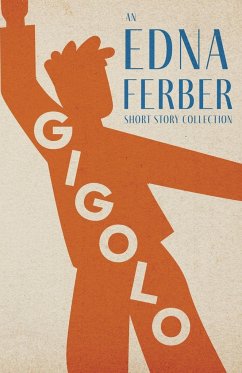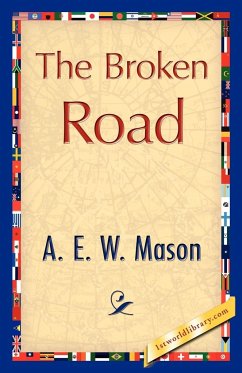
Gigolo
Versandkostenfrei!
Versandfertig in 1-2 Wochen
16,99 €
inkl. MwSt.

PAYBACK Punkte
8 °P sammeln!
Though he rarely heeded its summons-cagy boy that he was-the telephone rang oftenest for Nick. Because of the many native noises of the place, the telephone had a special bell that was a combination buzz and ring. It sounded above the roar of outgoing cars, the splash of the hose, the sputter and hum of the electric battery in the rear. Nick heard it, unheeding. A voice-Smitty's or Mike's or Elmer's-answering its call. Then, echoing through the grey, vaulted spaces of the big garage: "Nick! Oh, Ni-ick!" From the other side of the great cement-floored enclosure, or in muffled tones from beneath...
Though he rarely heeded its summons-cagy boy that he was-the telephone rang oftenest for Nick. Because of the many native noises of the place, the telephone had a special bell that was a combination buzz and ring. It sounded above the roar of outgoing cars, the splash of the hose, the sputter and hum of the electric battery in the rear. Nick heard it, unheeding. A voice-Smitty's or Mike's or Elmer's-answering its call. Then, echoing through the grey, vaulted spaces of the big garage: "Nick! Oh, Ni-ick!" From the other side of the great cement-floored enclosure, or in muffled tones from beneath a car: "Whatcha want?" "Dame on the wire." "I ain't in."













